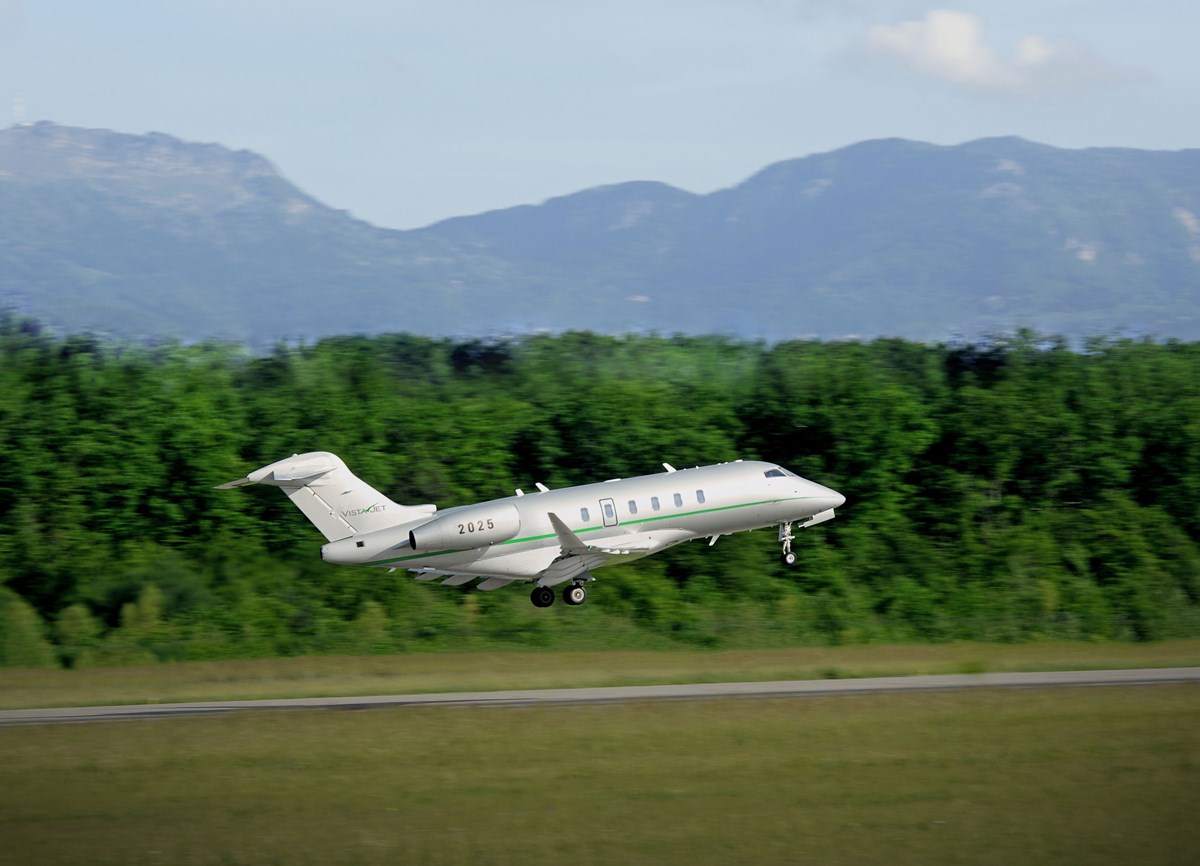
VistaJet commits to carbon neutrality by 2025 and spearheads the call for change — working with, and pushing, the industry to go further than the current goal of a 50% reduction of emissions by 2050 set by civil aviation industry bodies, IATA and the global business aviation community.
Aviation plays a crucial role in driving the global economy as well as connecting people and countries around the world. While it is impossible to imagine a world without air mobility, and as travel continues to be a necessity for many companies — particularly to redevelop their businesses postpandemic — we must make every effort to simultaneously protect our environment.
In 2020, over 80% of VistaJet Members offset CO2 emissions relative to their flights’ fuel consumption in partnership with South Pole, an award-winning project developer and global provider of climate action solutions. By offering its clients a means to compensate for the impact of their footprint, VistaJet is supporting an industry-wide push for a greener recovery and channeling important finance to projects that help reduce emissions and improve livelihoods, today.
VistaJet also partnered with SkyNRG, a pioneer and a global leader in Sustainable Aviation Fuel (SAF), to be the first to provide global access to SAF for business aviation. Among other product and service innovations, VistaJet introduced the Global 7500, the first business jet with an Environmental Product Declaration; optimized routes to reduce fuel burn; invested in AI technology for optimized fleet management; and drove the sustainability conversation and awareness among its clients and the whole aviation industry.
Outlined below are the sustainable projects VistaJet currently has in place to ensure the target is met:
While offsets and SAF are the current and available options to reduce its carbon footprint, VistaJet, together with its partners, industry and clients, will continue to actively seek and invest in new developments to help push the current boundaries. Between now and 2025, VistaJet will look to new technology and innovations to further reduce its GHG footprint in line with the latest available science, to become the first carbon neutral business aviation operating company by 2025*.
“Since the inception of VistaJet 17 years ago, we have always looked to the future, innovating and driving change within our industry. We have taken on the challenge to establish and promote a more efficient and sustainable way of flying. This is why, together with our partners and clients, we have been developing and adopting best practices and innovative solutions. Our model itself is the most effective in focusing on utilization and a shared fleet concept; and adoption of more sustainable aviation fuels, and smarter, more economic aircraft. The industry as a whole must step up to combat climate change and its impact today — it’s the right thing to do and we all have to act now.”
Thomas Flohr, Founder and Chairman of VistaJet
The VistaJet sustainability program and innovation approach will also serve as a blueprint for all other companies in the Vista Global group and its key partners.

Vista to Highlight Continued Growth and Leadership in Asia Pacific at BAAFEx 2025

VistaJet Crafts the Most Incredible Lunar New Year Family Celebrations

VistaJet Wins ‘Best Private Aviation Company Award’ at Robb Report Hong Kong’s Leaders of Luxury Summit 2024

VistaJet Celebrates 20 Years of Excellence with Top Industry Recognition at AsBAA Icons of Aviation Awards for the Sixth Consecutive Time